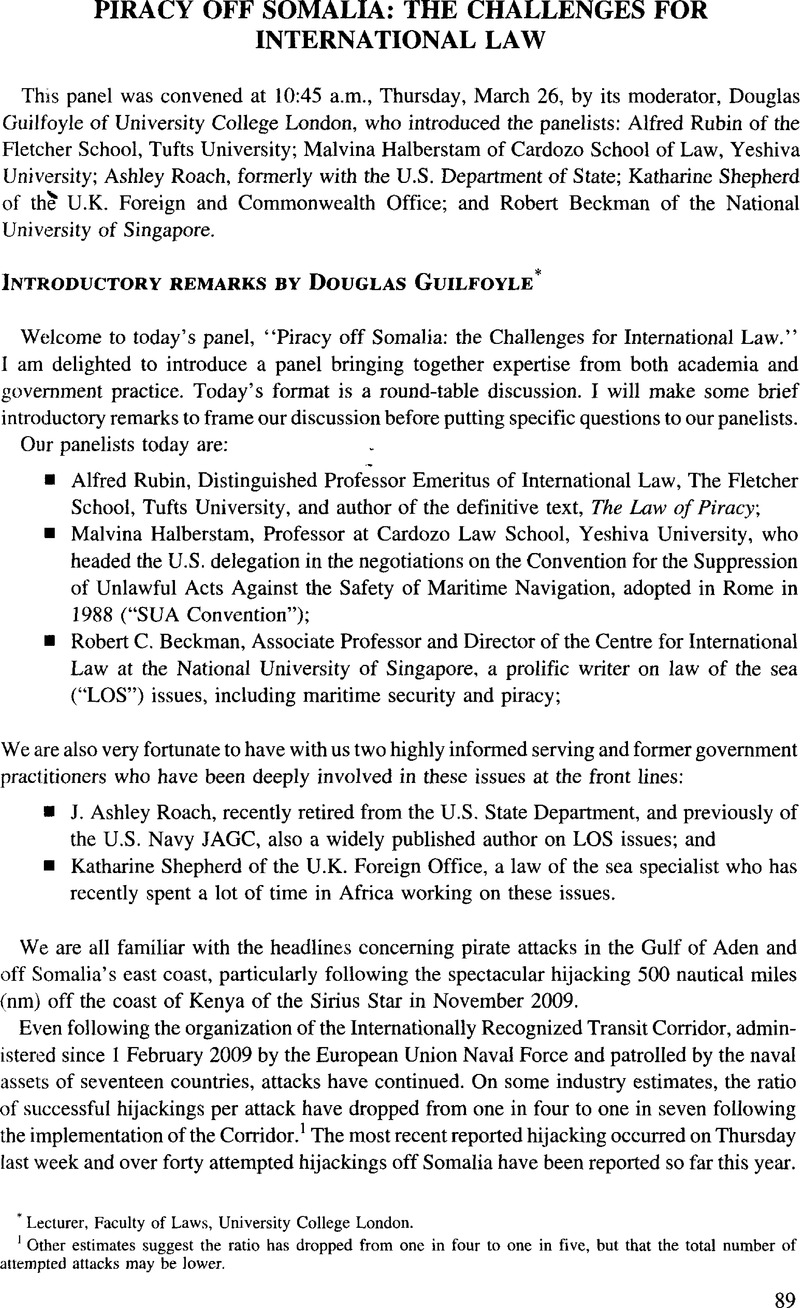No CrossRef data available.
Article contents
Introductory Remarks by Douglas Guilfoyle
Published online by Cambridge University Press: 28 February 2017
Abstract

- Type
- Piracy off Somalia: the Challenges for International Law
- Information
- Copyright
- Copyright © American Society of International Law 2009
References
1 Other estimates suggest the ratio has dropped from one in four to one in five, but that the total number of attempted attacks may be lower.
2 United Nations Convention on the Law of the Sea art. 101, Dec. 10 1982, 1833 U.N.T.S. 3 (Unclos).
3 Id. art. 105.
4 I am grateful to J. Ashley Roach for suggesting in discussion that this was not the intention behind the UNSCRs, but that they rather served to provide political and legal certainty (or “cover”) to states who either doubt the de facto effectiveness of the Transitional Federal Government or do not recognize it as a de jure government. Others have since suggested to me that a UNSCR is also constitutionally useful for some states in terms of domestic authority to deploy military forces overseas.


